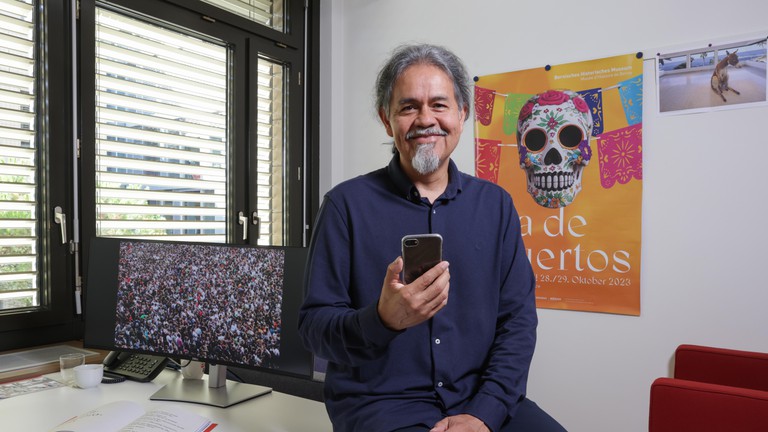Become an engineer in Digital Humanities!
The power of data, the depth of culture
Pair a rigorous technical education with a deeper understanding of user experience, cultural and social contexts as well as real-world application of digital tools and become an engineer in DH.

Why the EPFL DH Master?
Our society is shaped with data primarily produced, consumed, and curated by people – from cultural and social media to historical and urban data. Digital humanities engineers have the advantage of pairing technical skills in computer and data science with the applied interdisciplinary understanding needed to pursue a broader range of career opportunities.
There currently exists a gap between specialists with strong technical skills and leaders with a depth of cultural understanding, critical approach and creative mindset required to make impactful decisions. Individuals who can bridge this gap are rare and in high demand, and the EPFL Digital Humanities Master’s is training engineers who are well placed to take advantage of these positions.
In addition to more standard ICT careers, a broad range of additional positions also match well with a digital humanities engineer’s skill set, for example: user experience designer, data journalist, artificial intelligence specialist for the creative industries (media, music, video games, fashion), data scientist in the humanitarian sector and numerous academic careers in the growing field of the digital humanities.
Applied learning, real-world projects
To help future engineers to take the next step in their careers, the EPFL Digital Humanities Master’s program incorporates extensive use of applied learning via projects and work in teams. These dynamics not only offer the best preparation for real-world situations but also encourage sharing and growth within gender and culturally diverse classes.
Click on the links below to learn more about the EPFL DH Master directly from students, including their projects, internships and experiences. Additional information (or links to that information) for items such as entry requirements, costs, campus life and the online application form can be found via the FAQ page.
In addition, for an even broader view of DH work being done at EPFL, you can visit the pages of our DH labs and working groups: DHLAB — Digital Humanities Laboratory, eM+ — Laboratory for Experimental Museology, LHST — Laboratory for the History of Science and Technology, DCML — Digital Musicology Laboratory, and the Social Computing Group.

EPFL Bachelor Students
How to be involved or to prepare for DH

Student Portal
For current DH Master students – everything you need to know on your studies.

 31 march
31 march 







